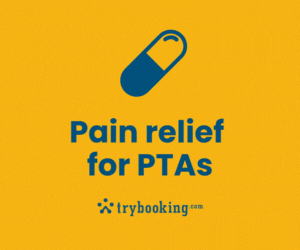Finding a fundraising event that will appeal to both five-year-olds and 11-year-olds can be tricky; it’s no surprise that something that fires up the younger children will seem pretty uninspiring to those in upper years. When planning your next event, think about how to make it more appealing to all ages.
If the older children don’t want to hang out with younger children then try splitting the event into two sessions: one for KS1 and one for KS2. Or perhaps hold an event for children in Years 5 and 6 only.
It’s also a good idea to ask the children themselves about what would interest them – getting the pupils involved in planning gives them ownership and is likely to make them more invested in the event. If you have a student council, ask them to gather the opinions of their peers on what kinds of events they would like to attend.
If you’re stuck for ideas, try one of these tried-and-tested events. You’re sure to find something that will appeal to all ages.
Break the rules day
A ‘break the rules’ day is a way for kids to express their rebellious streak in a controlled way, and is more fun than a non-school-uniform day. It also has more fundraising potential as rather than paying a set amount, children pay for each rule that they break.
Compose a list of rules, consulting teachers beforehand to make sure they won’t cause too much mayhem. These could be:
- You must wear your uniform
- You must not have fake tattoos
- You must not have a silly hairstyle
- You must not wear nail varnish
- You must drink only water
- You must have a healthy lunch
Charge a 50p ‘fine’ for every rule broken – you may wish to set a limit on how many rules each pupil can break to avoid too much chaos! Advertise the rules well in advance so parents can work out how much money to give their children. As this event has no costs, it’s pure profit.
Sleepover
Contrary to what some children might think, their teachers don’t actually sleep at school. But pupils can – if you throw a sleepover in the hall! Ask pupils to bring sleeping bags and pillows, plus overnight supplies. Run some classic party games with prizes, before tucking into late-night snacks. You could even show a film, as long as you have the right licensing in place – read our guidance for more details. You will need to ensure you have the relevant ratio of DBS-checked supervising adults to children.
Mini prom
Develop your disco into a mini prom to give kids a grown-up evening with their friends. Invite the children to dress up, or choose a theme such as red carpet or masquerade ball. Start with a sit-down meal, then pump up the music and get everyone dancing. Set up a photo booth with some fun props, using an instant camera so you don’t have to worry about retaining images of the children. Create a chill-out space with a pop-up gazebo, fairy lights and beanbags where people can chat. You can never go wrong with a party game or two, but tailor them to an older audience.
Escape room
Get pupils to flex their team and strategy skills with an escape room. Challenge your committee and teachers to come up with a series of age-suitable puzzles, testing them as you go to guarantee they’re doable. Use equipment readily available at school so you don’t have to buy any extras, and work the puzzles into a story for pupils to follow. Once it’s set up, do a test run with some parents to make sure it works.
Charge £3-4 per pupil, asking children to enter in teams of four to six. The escape room can be run in multiple classrooms at the same time, but if you have more teams than classrooms, hold sessions at different times.
Ask volunteers to roam the corridors giving clues and making sure there’s not too much mischief going on. Give teams an hour to escape their room and get back to the school hall, where they can receive an award for finishing. Award a bonus prize to whichever team does it in the quickest time.
Obstacle course
Sometimes the most straightforward event can be the most entertaining. Create a ‘wipeout’ course using equipment such as hurdles, cones, tunnels, hula hoops and bubble machines. Lay these out on the school field and invite pupils to run the course in groups of two or three at a time. To raise money, request that pupils seek sponsorship or ask them to pay a fee to take part. While children do their run, invite their peers to stand around the course spraying the runners with water pistols – you could even give them coloured powder to throw. Place a photographer at a key point on the route to capture a shot of each runner as a souvenir – just like a theme park!
‘Our UV disco was our best-attended disco ever’
‘We had loads of glow sticks left in storage after becoming an Eco-School. Rather than throwing them away, we wanted to use them for an event, so we decided to hold a glow-in-the-dark UV disco. It was our best-attended disco ever, with over half of Years 5 and 6 coming along. The disco was open to the whole school, but KS1 had theirs straight after school, followed by KS2 at 4:30pm.
We bought UV paint from Baker Ross and a UV disco light from Amazon. I splattered the UV paint over a sheet, which we put up in the hall so that it glowed under the UV light. We asked the children to wear white T-shirts or neon colours, and they all looked terrific glowing in the dark. We charged £2 a ticket, which included a hotdog, drink and glow stick for each child. Although we kept things quite basic, the kids loved it – especially the older ones.’
Suzanne Hurry, PTA chair, Green Lane Primary Academy, Leeds, Yorkshire (448 pupils)
‘The children were happy, loud and competitive’
‘We decided to hold a different event for Years 5 and 6 because of the low uptake for these year groups at our discos and movie nights. We held a quiz night in the school hall straight after school, and each team was allocated a table, with the children choosing their own team name. A mum who is a secondary school teacher set the questions and was also our quiz master. We held several rounds, including:
- David Walliams books
- Space
- Music (identifying a song
- from the intro)
- Sport and games
- General knowledge
- Tasting rounds (guessing
- drink and crisp flavours)
- Pictures (using a map of the world)
- Biscuits
We charged £4 per child, which included drinks and three snack items, which they could choose from the snack station. Each round was marked straight away, and the scores were written on a whiteboard for all to see. The children were happy, loud and super-competitive during the quiz.’
Emma Walding, ROLE, Friends of Wyburns, Wyburns Primary School, Rayleigh, Essex (222 pupils)










